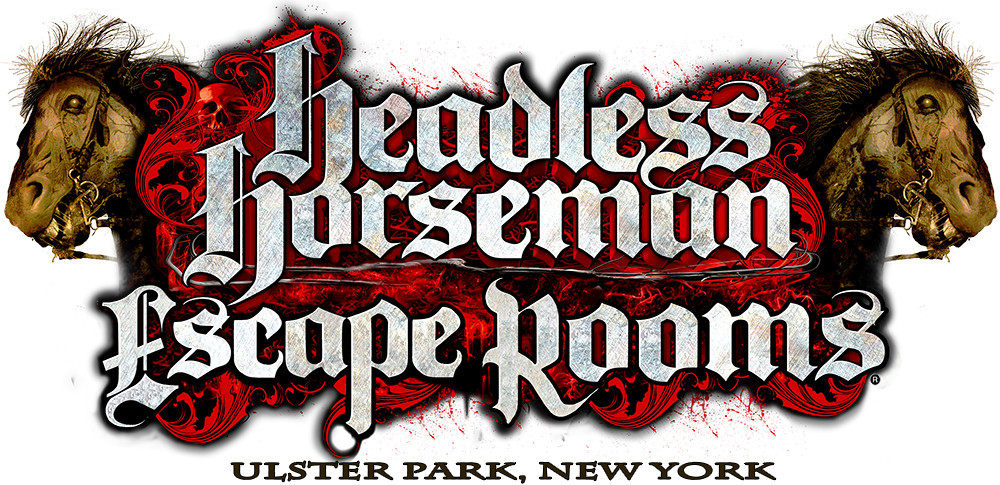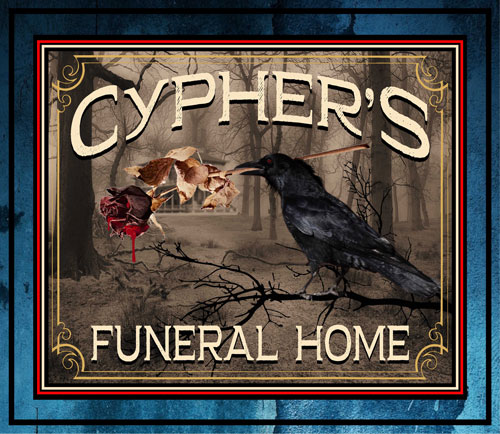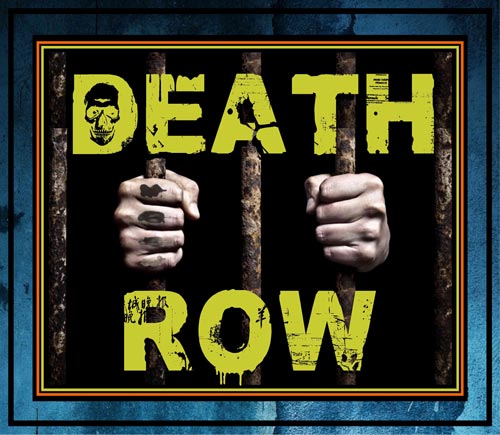Escape rooms have become a global phenomenon, offering a unique blend of teamwork, puzzle-solving, and adrenaline. For those looking to conquer these immersive challenges, particularly when the clock is ticking, mastering certain strategies can make all the difference. Here we will explore eight ingenious tips to help you beat the clock in any escape room.
Table of Contents
Introduction
1: Teamwork is Key
2: Keep Calm and Stay Focused
3: Observe Everything
4: Think Outside the Box
5: Effective Time Management
6: Track Solved and Unsolved Clues
7: Don’t Be Afraid to Ask for Hints
8: Learn from Each Experience
Frequently Asked Questions (FAQs)
Key Takeaways
|
1. Teamwork is Key
Teamwork is essential in an escape room, where diverse skills and perspectives can greatly enhance the problem-solving process. Here's how to make the most of your team.
Choose the Right Team
- Diverse Skills and Perspectives: A well-rounded team should include members with different skills such as puzzle-solving, logical reasoning, and creativity. This diversity allows for tackling various challenges effectively.
- Size Matters: The ideal team size for an escape room varies, but generally, a group of 4-6 allows for effective collaboration without overcrowding.
Familiarity and Comfort
It's beneficial to be in a team with whom you're comfortable communicating. Friends, family, or co-workers who understand each other's strengths and weaknesses make great teams.
Communicate Effectively
- Clear and Concise Communication: In an escape room, time is of the essence. It’s crucial to communicate ideas clearly and concisely to avoid misunderstandings and save time.
- Active Listening: Equally important is active listening. Paying attention to others' suggestions and building upon them can lead to breakthroughs.
- Non-Verbal Communication: Sometimes, non-verbal cues can be just as informative. Gestures or pointing out things can quickly draw attention to important details.
Assign Roles Wisely
- Leader: Assign a team leader to oversee the overall strategy and keep the team focused on objectives.
- Timekeeper: Designate someone to keep an eye on the time, ensuring that the team is on track.
- Organizers and Searchers: Divide the team into those who are good at organizing and interpreting clues and those who excel at searching the room for new clues.
- Puzzle Solvers and Critical Thinkers: Have members who are good at puzzles and critical thinking focus on deciphering the clues.
2. Keep Calm and Stay Focused
Staying calm and focused is crucial in the high-pressure environment of an escape room. Here’s how to maintain your composure and concentration to solve puzzles more effectively.
Manage Stress
- Breathing Techniques: Utilize breathing exercises to calm nerves. Deep, controlled breathing can help reduce anxiety and maintain a clear head. The 4-7-8 breathing technique is an effective exercise for reducing anxiety and stress, beneficial for staying calm and focused in high-pressure situations like escape rooms.
- Break Down Challenges: View the escape room as a series of small challenges rather than one overwhelming task. This approach helps in reducing stress and making the game more manageable.
- Positive Mindset: Maintain a positive attitude. Encourage your team and celebrate small victories to keep morale high.
Stay Focused
- Avoid Distractions: Stay attentive to the task at hand. Avoid getting sidetracked by irrelevant details or overthinking one puzzle.
- One Puzzle at a Time: Focus on solving one puzzle at a time. This helps in maintaining clarity and prevents confusion for the entire game.
- Regular Check-ins: Periodically regroup with your team to reassess and refocus. This ensures everyone is on the same page and working towards the same goal.
Clear Mind for Problem Solving
- Mental Preparation: Before entering the room, clear your mind of outside concerns. A focused mindset is more effective in problem-solving.
- Adaptive Thinking: Be adaptable in your thinking. If a strategy isn’t working, be ready to pivot and try a different approach.
- Mindfulness Practices: Engage in mindfulness practices if you feel overwhelmed. This can include quick meditative exercises to regain focus.
3. Observe Everything
In an escape room, details are everything. Paying close attention to your surroundings can be the difference between escaping and running out of time. Here's how to enhance your observational skills.
Pay Attention to Detail
- Inspect Every Nook and Cranny: Every element in the room could be a clue. Carefully examine all objects, looking for hidden compartments, unusual markings, or patterns.
- Don’t Ignore the Obvious: Sometimes the most obvious elements are overlooked. Always double-check the most conspicuous objects or decorations in the room.
- Look for Patterns and Connections: Be alert to patterns or connections between objects in the room. These could point to the next step or solution, leading you to finally solve the puzzle.
Room Observation Techniques
- Systematic Searching: Divide the room into sections and search each part systematically. This ensures that no area is overlooked.
- Communicate Discoveries: Immediately communicate any discoveries to your team. What might not make sense to you could be the missing piece for someone else.
- Use All Senses: While sight is crucial, sometimes clues are auditory or tactile. Pay attention to sounds, textures, and even smells.
Spotting Commonly Missed Clues
- Hidden in Plain Sight: Some clues are hidden in the most obvious places. Always revisit areas and objects you might have dismissed initially.
- Think Like a Designer: Try to think from the perspective of the escape room designer. Ask yourself why a particular item or design is in the room and see if you can find clues in certain designs.
- Non-Linear Thinking: Escape rooms often require non-linear thinking. Be open to the idea that the solution may not follow a conventional path. Observe everything.
4. Think Outside the Box
Escape rooms are designed to challenge your conventional thinking and problem-solving skills. Thinking outside the box is often the key to unlocking puzzles that seem impossible at first glance. Here’s how to foster creative problem-solving.
Creative Problem Solving
- Reimagine Use of Objects: Look at objects not just for what they are, but for what they could represent or be used for. An item's unconventional use could be the key to a puzzle.
- Link Unrelated Elements: Try to form connections between seemingly unrelated elements in the room. These connections can often lead to unexpected solutions.
- Challenge Assumptions: Question your initial assumptions about each puzzle. A fresh perspective might reveal a solution you hadn’t considered.
Unconventional Thinking Examples
- Reverse Thinking: Instead of thinking about what you need to find, consider what you need to achieve and work backward.
- Use of Metaphors: Consider if any elements in the room symbolize something else or could be part of a larger metaphorical puzzle.
- Role Play: Imagine yourself in a different role or scenario. This change in perspective can provide new insights into the puzzles.
Balancing Creativity with Logic
- Blending Creativity and Rational Thought: While creativity is vital, balancing it with logical reasoning ensures that solutions are grounded and applicable.
- Cross-Check Ideas: When someone proposes a creative solution, cross-check it with the logic of the room’s theme and narrative to see if the solution is worth trying out.
- Brainstorming Sessions: If stuck, hold a quick brainstorming session with your team. This can produce a blend of creative and logical ideas that will help you solve puzzles one by one.
5. Effective Time Management
Time management is a critical skill in escape rooms, where every second counts. Efficiently managing your time can make the difference between escaping and being trapped. Here's how to make the most of your allotted time.
Prioritize Tasks
- Identify Key Puzzles: Quickly identify which puzzles are central to your progress and prioritize them. Not all puzzles need to be solved in the order they are found.
- Delegate Based on Strengths: Assign tasks to team members based on their strengths. This ensures that each puzzle is tackled efficiently.
- Sequential vs. Parallel Tasks: Determine which tasks must be completed in sequence and which can be done in parallel. Splitting the team to work on different tasks simultaneously can save time.
Speed vs. Accuracy
- Balancing Quick Decisions with Thoughtfulness: Make decisions swiftly but don’t rush to conclusions without proper thought. A balance between speed and accuracy is key.
- Avoid Overthinking: While it’s important to be thorough, avoid overthinking. Spending too much time on one puzzle can be detrimental.
- Revisiting and Re-evaluating: If stuck, move on to another task and come back later with a fresh perspective. Sometimes, stepping away can provide new insights.
Avoid Time Wasters
- Recognize Dead Ends: Learn to recognize when you are at a dead end. Spending too much time on an unsolvable puzzle can be a major time waster.
- Effective Communication: Avoid repeating information or conversations. Effective communication within the team saves valuable time that you can use in solving puzzles instead.
- Streamlined Searching: Organize your search methods to avoid looking through the same places multiple times. A systematic approach is more time-efficient in these cases.
6. Track Solved and Unsolved Clues
Keeping track of both solved and unsolved clues is crucial in an escape room. It helps prevent redundancy, saves time, and ensures that all puzzles are addressed. Here's how to effectively manage your clues.
Organize Clues
- Designate a Clue Keeper: Assign one team member to be responsible for keeping track of all the clues. This person should note down what's been found and what it relates to.
- Use a Physical System: If allowed, use a notepad, whiteboard, or any physical system provided in the room to organize clues. Visually mapping out the clues can help in seeing connections.
- Categorize Clues: Group clues by their type or the puzzles they relate to. This categorization makes it easier to see which puzzles are still unsolved.
Avoid Revisiting Solved Puzzles
- Confirm Solutions: When a puzzle is solved, confirm it with the entire team. This prevents others from accidentally revisiting it, which can waste time and further confuse other unsolved puzzles.
- Mark Solved Puzzles: Physically marking or moving aside solved puzzles, if possible, can help in distinguishing them from unsolved ones.
- Recap Progress Periodically: Regularly recap what’s been solved and what’s left. This keeps everyone informed and focused on the remaining challenges.
Progress Tracking
- Regular Checkpoints: Set regular checkpoints to assess progress. This can include checking off puzzles from a list or discussing what everyone is working on.
- Adapt Strategy as Needed: Based on your progress, be ready to adapt your strategy. If certain puzzles are taking too long, consider switching tasks among team members.
- Time Allocation: Allocate a rough time limit for each puzzle. If you exceed this limit, consider moving on and returning later with fresh eyes.
7. Don’t Be Afraid to Ask for Hints
Asking for hints in an escape room can be a strategic move, especially when the clock is ticking. Knowing when and how to ask for hints can help keep your team moving forward. Here’s how to make the most of this valuable resource.
Hints Matter
- Understanding Hint Mechanics: Familiarize yourself with how hints are provided in the escape room. Some rooms offer unlimited hints, while others may have restrictions.
- Hints as a Strategic Tool: View hints not as a sign of failure, but as a strategic tool. They can provide just enough guidance to get you back on track without giving away the solution.
- Balancing Challenge and Assistance: Use hints to balance the challenge of the room with the assistance you need. It’s about finding the right level of challenge for your team.
When to Ask for Hints
- Recognizing Stalemates: If your team has been stuck on a puzzle for a significant amount of time, it might be wise to ask for a hint. A stalemate occurs in an escape room scenario when a team reaches a point where they have no viable options or moves left to progress in the game, akin to a draw in chess.
- Before Frustration Sets In: Ask for a hint before frustration takes over. It's better to maintain a positive and enjoyable experience than to get bogged down by a single puzzle.
Using Hints Effectively
- Collective Decision: Decide as a team when to ask for a hint. This ensures that everyone is on board and understands the need for assistance.
- Specific Requests: When asking for hints, be specific about where you're stuck. This helps the game master provide a hint that is helpful but not too revealing.
- Integrating Hints into Strategy: Once a hint is received, integrate it into your overall strategy. Discuss as a team how this new information changes your approach.
8. Learn from Each Experience
Every escape room is a learning experience, whether you escape or not. Reflecting on each game helps you improve your skills and strategies for future challenges. Here's how to learn and grow from each escape room visit.
Post-Game Analysis
- Discuss What Worked and What Didn’t: After the game, take time to discuss with your team what strategies worked well and what could have been done differently. This reflection helps in understanding the dynamics of the game.
- Analyze Puzzles and Solutions: Review the puzzles and their solutions. Understanding how each puzzle was solved can provide insights into how to approach similar challenges in the future.
- Feedback from Game Masters: Don’t hesitate to ask for feedback from the game master. They can offer valuable insights on your team's performance and where you might improve.
Learn from Mistakes
- Embrace Mistakes as Learning Opportunities: Recognize that mistakes are part of the learning process. Each error provides a chance to grow and improve.
- Identify Patterns: Look for patterns in the mistakes made. Are there certain types of puzzles that consistently pose challenges? Understanding these patterns can help in future escape room visits.
- Adjust Strategies Accordingly: Based on the mistakes and challenges faced, adjust your strategies for future games. This could mean changing team roles, communication methods, or how you approach puzzles.
Apply Past Experiences
- Build on Previous Successes: Use successful strategies from past games in future escape rooms. What worked well in one room might be effective in another.
- Continuous Improvement: Aim for continuous improvement. Each escape room is an opportunity to refine skills such as observation, problem-solving, and teamwork.
- Explore Different Types of Rooms: Visiting different types of escape rooms, can broaden your experience and adaptability. Each room has its unique challenges and themes, providing diverse learning opportunities.
Frequently Asked Questions
1. What is the best way to prepare for an escape room?
- Preparing for an escape room involves familiarizing yourself with common puzzle types, working on communication and teamwork skills, and coming with a positive and open-minded attitude. It's also helpful to know the rules and theme of the escape room beforehand.
2. How important is teamwork in an escape room?
- Teamwork is crucial in escape rooms. Success often depends on effective communication, collaboration, and the ability to leverage the diverse strengths and perspectives of each team member.
3. Can you ask for hints in an escape room, and how many?
- Yes, you can ask for hints in most escape rooms. The number and nature of hints vary depending on the escape room’s policy. Some rooms offer unlimited hints, while others may limit the number or provide them under certain conditions.
4. What should you do if you get stuck on a puzzle in an escape room?
- If you get stuck, try to approach the puzzle from a different angle, ask for input from other team members, or switch to a different puzzle for a while. If needed, don't hesitate to ask for a hint.
5. Are escape rooms suitable for all ages?
- Many escape rooms are designed to be suitable for a wide range of ages, but some may have themes or puzzles that are more appropriate for older participants. It's best to check with the escape room facility for age recommendations and restrictions.
Book Your Adventure at Headless Horseman Escape Room in Ulster, NY, Today!
Ready to put your escape room skills to the test? Head over to the Headless Horseman Escape Room in Ulster, NY, where thrilling challenges and unforgettable adventures await you! Perfect for friends, families, or team-building events, our escape rooms are designed to engage your mind and test your teamwork. Don't miss out on the excitement—book your visit now and see if you have what it takes to beat the clock and emerge victorious!






